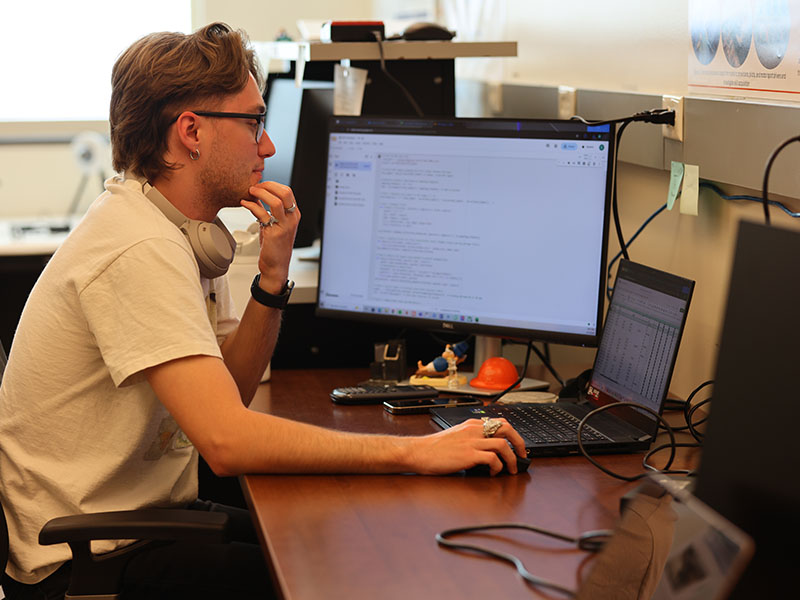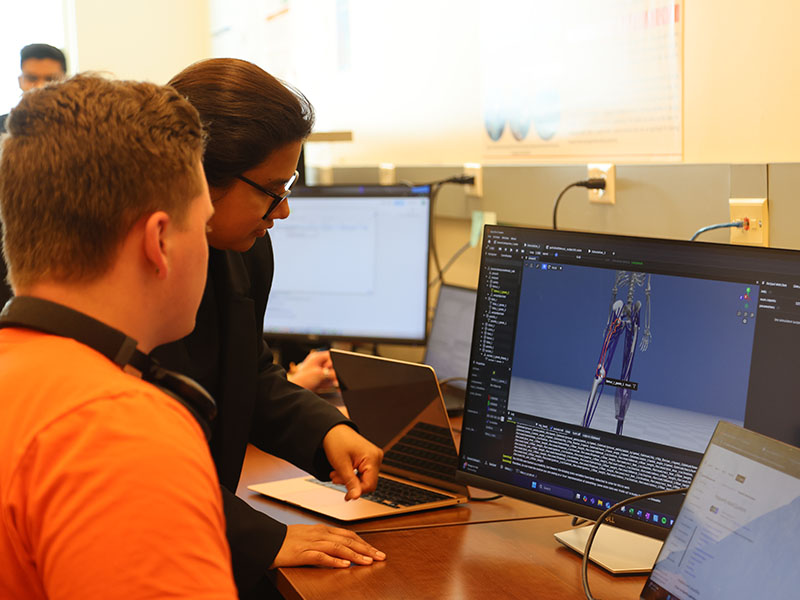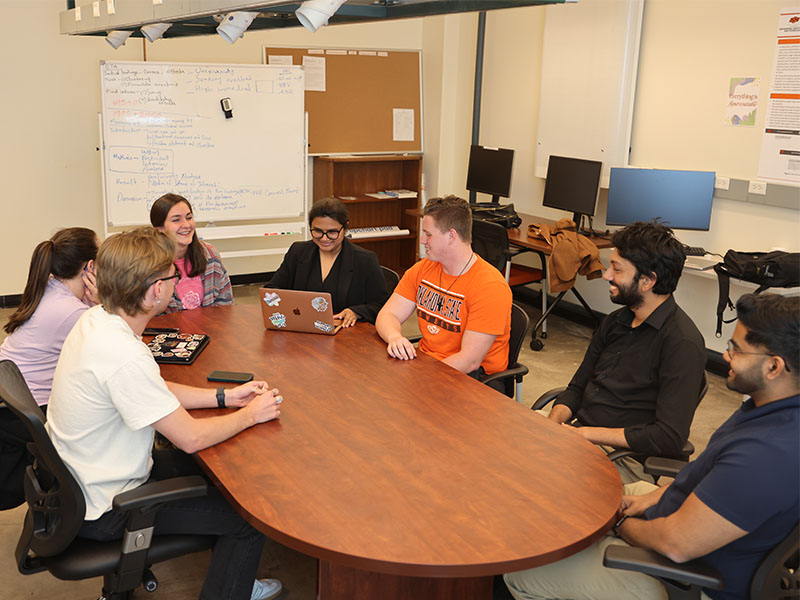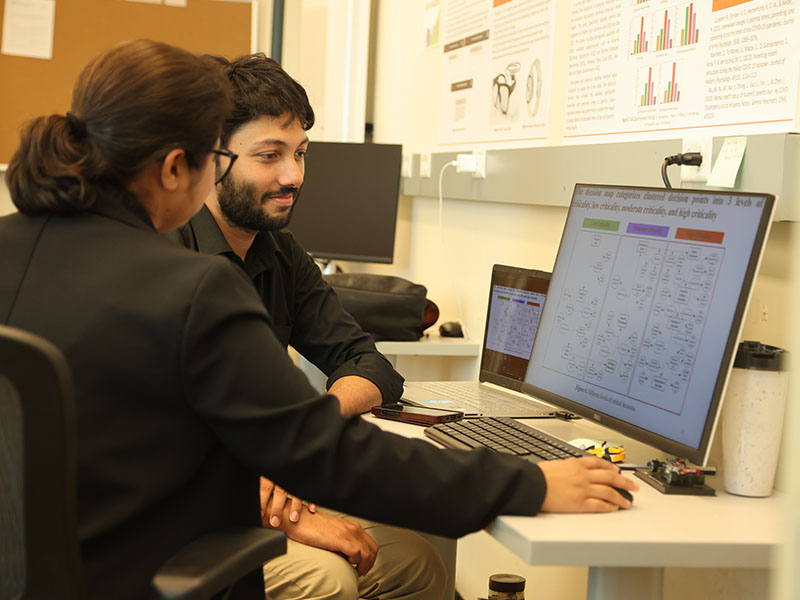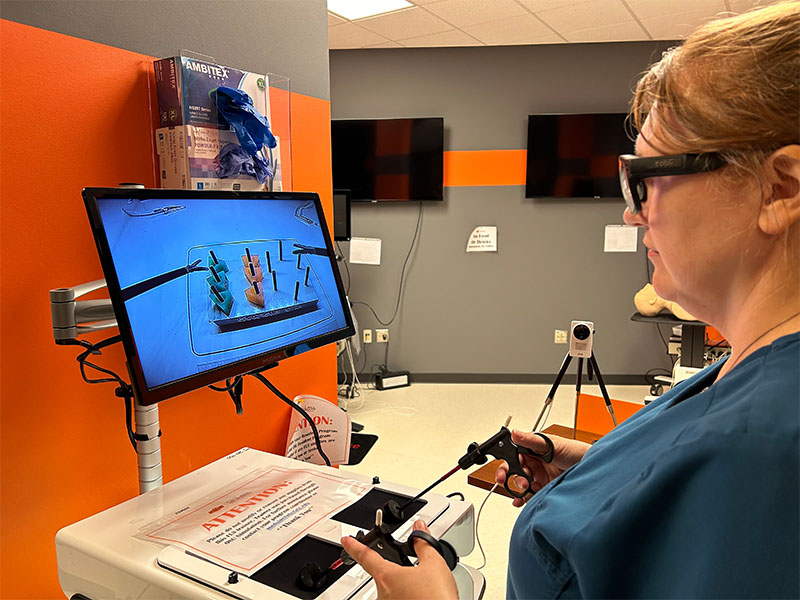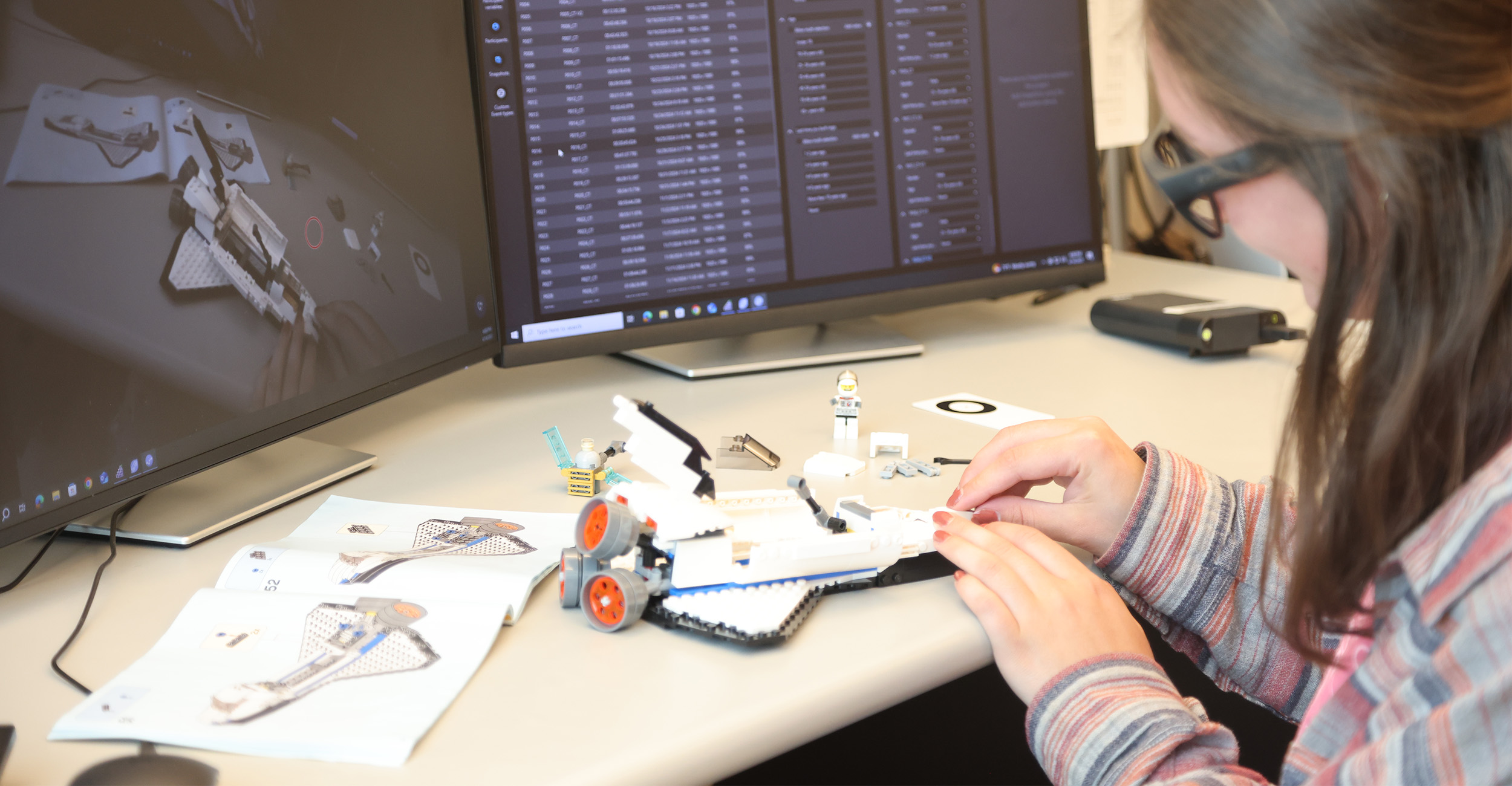
Under Pressure: OSU's CoPe Lab is where engineering meets human performance
Thursday, May 22, 2025
Media Contact: Kristi Wheeler | CEAT, Marketing and Communications Manager | 405-744-5831 | kristi.wheeler@okstate.edu
In the College of Engineering, Architecture and Technology, engineering doesn’t stop at circuits or structures; it extends to the cognitive systems that drive decision-making in the world’s most demanding professions.
Guiding this research is Dr. Pratima Saravanan, assistant professor in the School of Industrial Engineering and Management, whose Cognitive Performance (CoPe) Lab explores how people think, decide and perform under pressure.
From hospital ICUs to the fireground, from rural Oklahoma to high-tech classrooms, Saravanan and her team are building tools and models to help individuals and communities respond more effectively in high-stakes environments.
REAL-WORLD URGENCY
Saravanan’s drive to improve performance in pressure-filled settings began early in her academic career.
When she was a postdoctoral researcher at Houston Methodist Hospital, during the height of the COVID-19 pandemic, she studied ICU nurses’ stress responses and burnout, witnessing firsthand how critical decision-making and emotional well-being intersect in critical care conditions.
“It was a profound experience,” Saravanan said. “I saw how sustained pressure affects performance, communication and well-being. That experience made it clear to me that we need better ways to support individuals who work in high-stress roles.”
HELPING PEOPLE
The CoPe Lab’s projects reflect that vision.
One high-profile effort, funded by the Southwest Center for Occupational and Environmental Health, focuses on how firefighters make decisions in rapidly evolving emergency scenarios.
“Our goal is to support the people who support us: to make their tools smarter, their training more effective and their decision-making safer.”
Through behavioral and physiological data collection, the lab is studying how information is processed during shift changes and high-stress calls.
From that data, Saravanan’s team is developing a virtual reality-based firefighter training tool. The immersive experience helps trainees simulate decision-making under pressure, replicating the cognitive process of veteran responders.
“Our goal is to support the people who support us: to make their tools smarter, their training more effective and their decision-making safer,” she said.
The CoPe Lab’s research extends beyond emergency services. Another active project at Oklahoma State University investigates the impact of generative AI on engineering students’ working memory and problem-solving capacity. As AI becomes embedded in academic and professional environments, Saravanan wants to understand whether its presence enhances or erodes cognitive skill development.
“It is critical to understand whether students depend on GenAI to overcome limited working memory or if it restricts their cognitive engagement,” she said. “The results could help shape evidence-based AI usage policies in higher education.”
SUPPORTING COMMUNITY HEALTH
Saravanan is also deeply engaged in improving health outcomes for rural Oklahomans.
In collaboration with Dr. Bree Baker, director of the Musculoskeletal Adaptations to Aging and Exercise Lab in the OSU School of Kinesiology, Applied Health and Recreation, the CoPe Lab co-leads an initiative called Stay Strong, Stay Healthy, an eight-week strength training program for older adults.
In a separate effort, Saravanan is part of a team led by Dr. Ed Kirtley, associate dean of Engineering Extension, working to implement a community paramedicine model. The project provides person-centered care to rural areas, aiming to reduce hospitalizations and enhance local health care networks.
“We’re always looking for ways to connect systems engineering to human outcomes,” Saravanan said. “In rural health especially, there’s a tremendous opportunity to apply data and design thinking to real-life challenges.”
MENTORSHIP AND MOMENTUM
The CoPe Lab currently includes two doctoral students, one master’s student and four undergraduate researchers.
These students participate in every phase of the research lifecycle, including data analysis and machine learning, to cognitive task analysis and field studies.
For Saravanan, mentoring students is one of the most gratifying aspects of her work.
“The most rewarding part for me is when my students begin to take ownership of a problem — when they move beyond just completing tasks and start asking deeper questions, challenging assumptions, and thinking critically about the broader impact of their work,” she said. “Watching them develop the confidence to engage with other researchers, interpret complex data, and translate insights into meaningful solutions is incredibly fulfilling.”
Whether modeling decision fatigue in the emergency room, evaluating AI tools in the classroom or strengthening resilience in rural communities, the CoPe Lab exemplifies CEAT’s mission to advance research that matters. It is a place where engineering meets empathy, and the tools of science are used to support the people who support humanity.
Through it all, Saravanan remains focused on what brought her to this work in the first place: a passion for helping people make better decisions when it matters most.
Photos and Story by: Desa James | IMPACT Magazine

